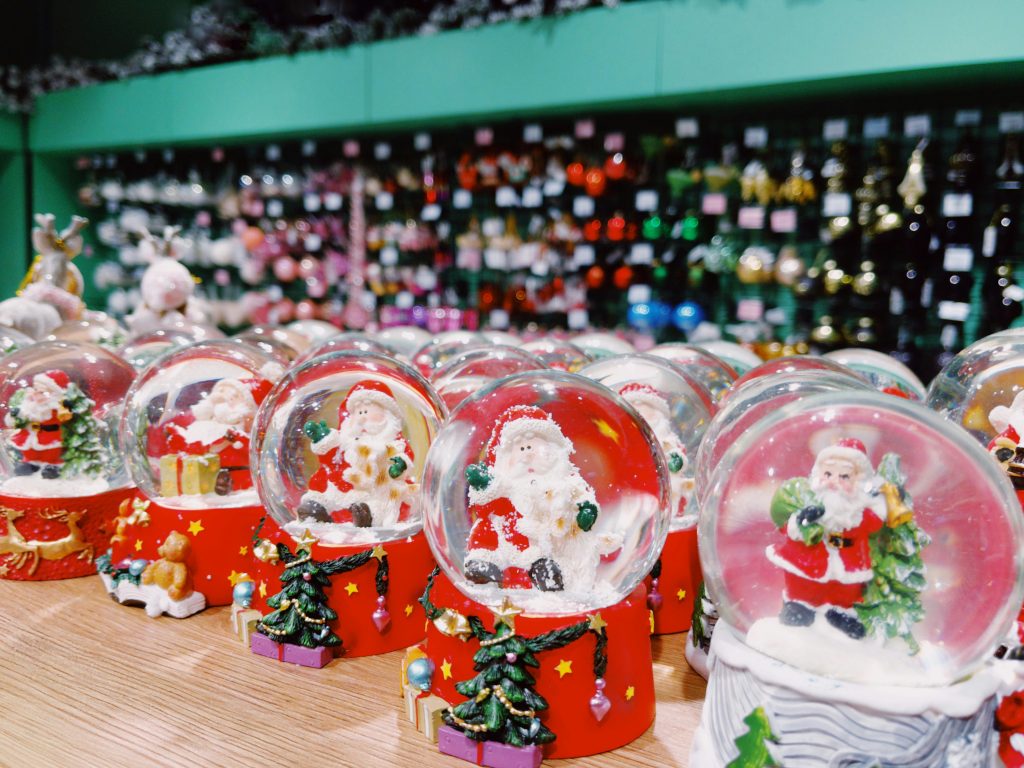In every culture, holidays and shopping traditions have held significant places in shaping social behavior, economic cycles, and personal rituals. Holidays, often steeped in tradition, bring people together to celebrate shared values, history, and beliefs. Shopping, especially during holidays, has become a cultural phenomenon, with enormous economic and social impact. But as society changes, so too should our approach to these once-sacred practices.
In this post, we’ll dive into how breaking free from outdated holiday and shopping traditions can lead to more meaningful experiences, healthier relationships with consumerism, and ultimately, create space for new, more sustainable ways of celebrating and giving.

Why Break Free from Holiday Traditions?
Holidays are often about more than just celebration; they are opportunities for reflection, connection, and making memories. Yet, over time, many holiday traditions have become ritualistic without much thought about their relevance. For example, Christmas, which began as a religious holiday, has transformed into a global consumer event, with people sometimes feeling more pressure to meet expectations than to enjoy the season. Similarly, Thanksgiving, a time to give thanks, has evolved into an event where overeating and excessive shopping dominate the experience.
Breaking free from these commercialized, often stressful traditions allows for a more authentic and enriching experience. It’s about stepping back and questioning: What do I really want from the holidays? Is this tradition serving my mental health, family, or the environment?
How to Break Free from Old Holiday Traditions
Rethink the Purpose of Holidays
Many holidays, especially major ones like Christmas, Easter, or Thanksgiving, have lost their original meaning or have become overwhelmed by commercialization. Instead of focusing on fulfilling external expectations, why not take the time to reconnect with the original purpose of these holidays? For example, if Christmas to you is about kindness and family, emphasize those values by spending quality time together instead of stressing about extravagant gifts or decorations.
Create New Traditions for Meaningful Celebrations
Break away from the commercial aspect of holidays and create new traditions that bring true joy and fulfillment. This could be something as simple as volunteering on Christmas Day or organizing a neighborhood gathering that focuses on shared experiences rather than material gifts. For Thanksgiving, perhaps it means opting out of the usual consumerist frenzy and creating a meal with local ingredients while discussing the importance of gratitude and community rather than excess.
Focus on Mindful Consumption
Instead of the usual holiday shopping spree, try to be intentional about your purchases. Whether it’s opting for experiences over physical gifts, supporting local businesses, or giving handmade or sustainable presents, you can shift the focus away from consumerism to something more thoughtful and meaningful. The idea is to reframe the holidays as a time for connection, not consumption.
Incorporate Digital Detoxes
During holidays, many people feel compelled to engage in non-stop shopping online, whether it’s looking for the best deals on Black Friday or Cyber Monday or scrolling through endless advertisements. Breaking free from this requires setting boundaries around your screen time and reconnecting with loved ones in the present moment. This might mean having a no-phone rule at the dinner table or spending an afternoon outdoors, disconnected from the constant noise of the digital world.
The Pressure of Holiday Shopping: Breaking Free from the Consumerist Cycle
For many, holiday shopping has become a stressful and often overblown part of the holiday season. The pressure to buy the “perfect gift,” keep up with trends, and engage in sales events like Black Friday or Cyber Monday can lead to financial stress, environmental harm, and a loss of true meaning behind the gifts we give. It’s no wonder that many people feel burnt out after the holiday season.
Breaking free from this cycle means creating new ways of approaching gift-giving, spending, and shopping that align with your personal values and make the holidays more meaningful.
How to Break Free from the Consumerist Pressure of Holiday Shopping
Give Experiences, Not Things
A gift doesn’t have to be wrapped in a box with a bow. One of the most meaningful shifts we can make in holiday shopping is to focus on experiences rather than material items. This could include giving concert tickets, a cooking class, a weekend getaway, or even a thoughtful homemade coupon for a future activity together. Experiences create lasting memories, and they are often more fulfilling than possessions that may gather dust.
Adopt a Minimalist Approach to Gifts
Minimalism isn’t just about reducing clutter; it’s also about intentionality in our purchases. Instead of buying excessive amounts of gifts or opting for cheap, mass-produced items that don’t serve a purpose, think about what will truly enhance someone’s life. A thoughtful, meaningful gift—one that’s functional, sustainable, or personal—can have far more value than an expensive, extravagant one.
Support Local and Ethical Businesses
The push for Black Friday and Cyber Monday sales often leads to buying from large, profit-driven corporations that exploit workers and harm the environment. This year, try supporting small businesses, local artisans, or ethical brands that align with your values. Not only will this help you break free from mass consumerism, but it will also help stimulate the local economy and support people who care about the quality of their products, as opposed to just the bottom line.
Set Financial Boundaries
The “spend till you drop” mentality is deeply embedded in holiday shopping culture. But the reality is, excessive spending during the holidays often leads to regret and financial strain. This year, set a budget for gifts and stick to it. You might be surprised at how little you need to spend to give thoughtful, meaningful presents. You could even consider a gift exchange with a spending limit or a “Secret Santa” tradition to keep things fun without overspending.
Embrace Sustainable Shopping
Traditional holiday shopping has a heavy environmental cost, from the energy used in manufacturing to the excess packaging and shipping. Consider making more sustainable choices, such as purchasing second-hand or eco-friendly gifts, choosing items with minimal packaging, or supporting brands that prioritize sustainability. By doing so, you can feel good about your choices while minimizing your impact on the planet.
New Traditions for New Holidays: A Time for Renewal
As we move forward in an increasingly interconnected and rapidly changing world, it’s essential to consider what we want our holidays—and shopping habits—to reflect. This might mean creating entirely new celebrations that fit the modern era. For example:
Eco-conscious Holidays: Create a new tradition where the focus is on sustainability. Perhaps host a “zero-waste” holiday meal or organize a clean-up event to give back to your community.
Technology-free Holidays: In a world dominated by screens, consider having a “tech-free” holiday season where the goal is to connect with those around you, share experiences, and be present.
Global Celebrations: Create hybrid celebrations that reflect a global outlook—mix traditions from different cultures and embrace the diversity of the world around you.
Conclusion
Breaking free from old traditions, whether it’s in the way we celebrate holidays or shop during the season, can lead to more meaningful, intentional, and fulfilling experiences. By shifting the focus from consumerism to connection, mindfulness, and sustainability, we not only honor the essence of these holidays but also create a legacy of new traditions that reflect our values in today’s world.
So, the next time the holiday season rolls around, remember: it’s okay to step away from the stress, the sales, and the social expectations. What matters most is how we make the season meaningful for ourselves and those we love. After all, the most cherished memories are the ones we create, not the ones we buy.


